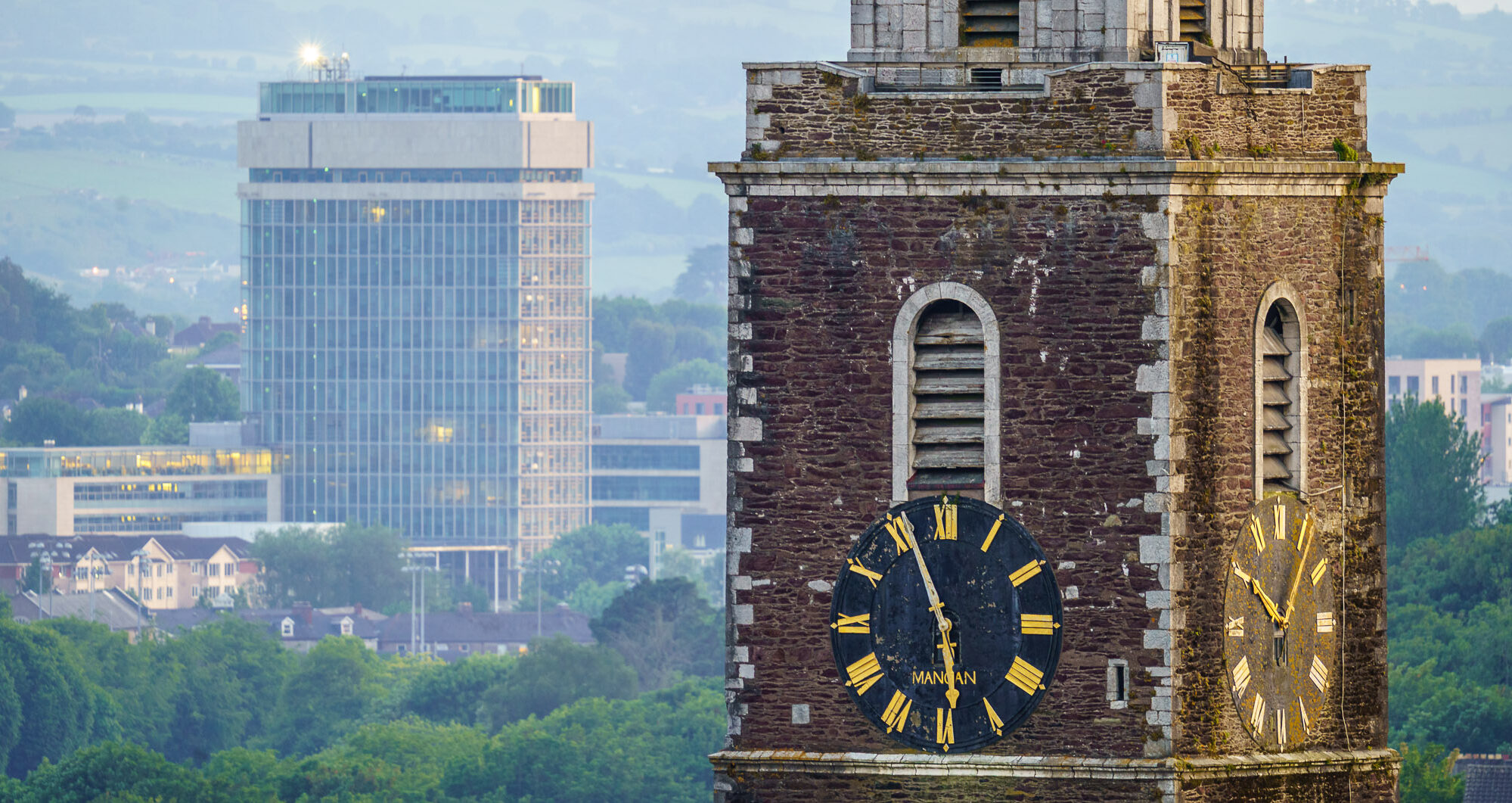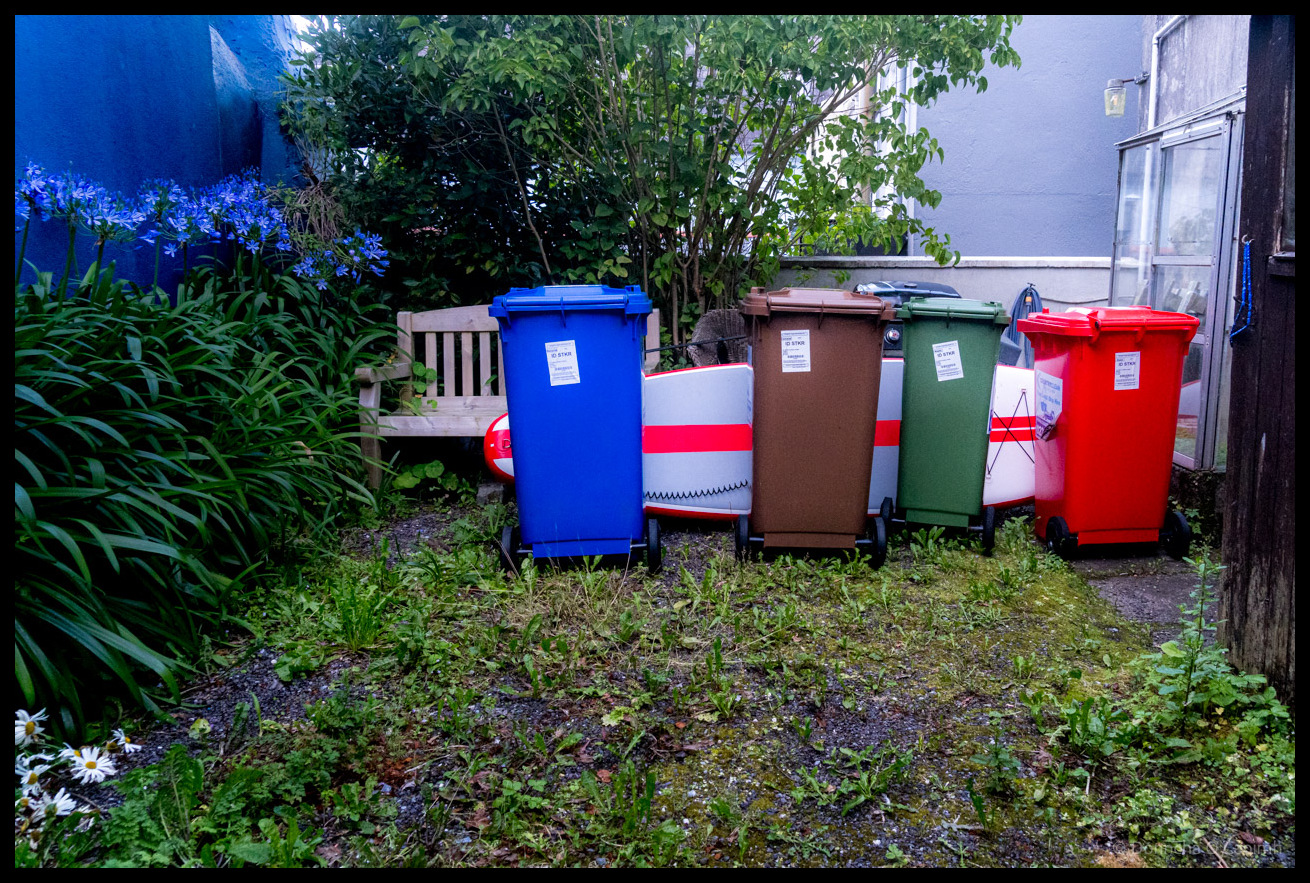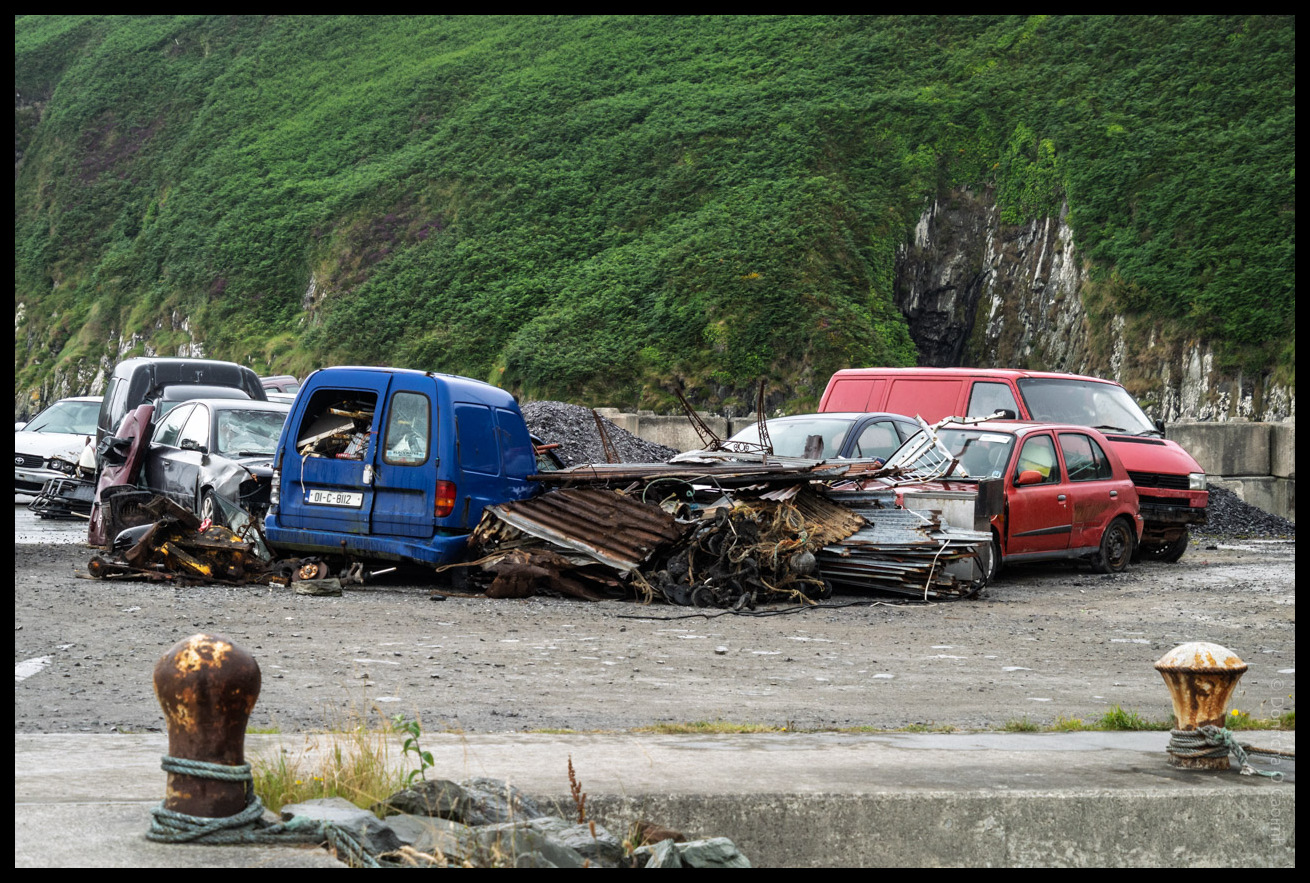When Recycling Gets Serious
This small garden caught my eye. It would be a nice space if not for the obligatory bins that every household must have. The left wall is a lovely deep blue, matching the colours of the flowers there.
Cape Clear’s Car Graveyard
What happens to old cars is one of the harsh realities of island life that doesn’t make it into the tourist brochures. Getting a dead vehicle off Cape Clear isn’t as simple as calling a scrap dealer as everything has to go by ferry, which makes the economics of removal pretty grim for islanders already…


